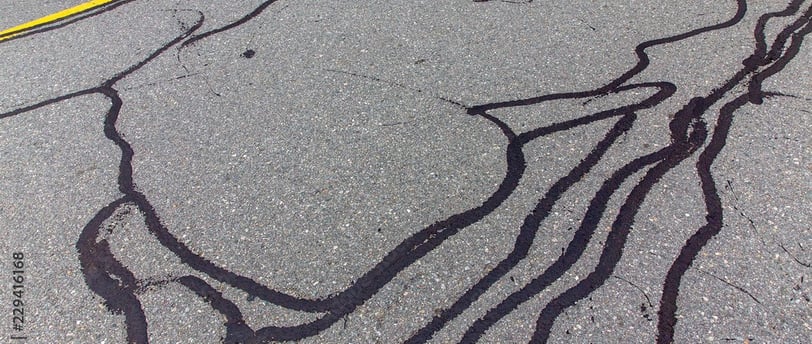How Often Should I Have Work Done?
How to plan ahead to prolong the life and look of your asphalt
2/15/20242 min read


Maintaining Your Asphalt: How Often Should I Have Work Done?
Asphalt driveways and surfaces are durable, but they're not invincible. Like any other part of your property, they require regular maintenance to ensure longevity and functionality. But how often should you be maintaining your asphalt to keep it in top condition? Let's delve into the essential aspects of asphalt maintenance and the recommended frequency of upkeep.
Understanding Asphalt Maintenance
Before diving into the maintenance schedule, it's crucial to understand why asphalt requires upkeep. Asphalt is subject to various factors that can degrade its quality over time:
Weather Exposure: Sunlight, rain, snow, and temperature fluctuations can all take a toll on asphalt surfaces, causing oxidation, cracking, and brittleness.
Heavy Use: Vehicles driving and parking on the asphalt surface can lead to wear and tear, especially in high-traffic areas.
Chemical Exposure: Oil leaks, gasoline spills, and other chemical substances can degrade the asphalt binder, leading to deterioration of the pavement.
Given these factors, regular maintenance is essential to prevent minor issues from escalating into major problems and to prolong the life of your asphalt surface.
Recommended Maintenance Schedule
While the frequency of asphalt maintenance can vary depending on factors such as climate, usage, and the age of the pavement, here's a general guideline for routine upkeep:
Sealcoating: Sealcoating is one of the most effective ways to protect asphalt surfaces from the elements and prevent premature deterioration. It's recommended to apply sealcoat every 1 to 3 years to maintain the integrity of the pavement and extend its lifespan.
Crack Sealing: Cracks in the asphalt surface should be addressed promptly to prevent water infiltration and further damage. It's advisable to inspect the pavement regularly and fill any cracks before they turn into potholes. We typically service a property every 1 to 2 years.
Pothole Repair: Potholes can develop over time due to water penetration, freeze-thaw cycles, and heavy traffic. They should be repaired promptly to prevent safety hazards and further pavement degradation. Inspect your asphalt surface regularly and fill any potholes as soon as they appear.
Routine Cleaning: Regular cleaning of the asphalt surface is essential to remove debris, dirt, and chemical spills that can accelerate pavement deterioration. Sweeping the surface and pressure washing as needed can help maintain its appearance and structural integrity.
Professional Inspection: In addition to routine maintenance tasks, it's advisable to have your asphalt pavement professionally inspected every few years to assess its condition and identify any potential issues that may require attention.
Maintaining your asphalt pavement on a regular basis is essential to ensure its longevity, functionality, and aesthetic appeal. By following a comprehensive maintenance schedule that includes sealcoating, crack sealing, pothole repair, routine cleaning, and professional inspections, you can prolong the life of your asphalt surface and minimize the need for costly repairs or replacement.
While the recommended frequency of maintenance tasks may vary depending on various factors, such as climate and usage, staying proactive and addressing issues promptly can help preserve the value and integrity of your asphalt pavement for years to come. If you're unsure about the condition of your asphalt or how often it should be maintained, you can contact us at Zinc Asphalt and we will give your property a free inspection and quote.
